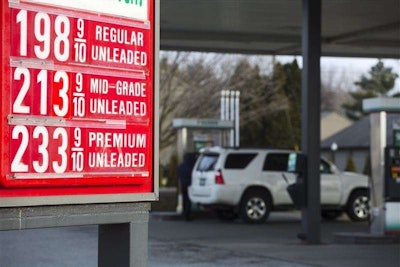
An analysis by the American Road & Transportation Builders Association (ARTBA) shows members of neither the Republican or Democratic parties have been negatively impacted politically after voting for a gas tax increase used for funding transportation projects.
ARTBA’s Transportation Investment Advocacy Center (TIAC) reviewed voting patterns of legislators in seven states during the last election cycle that passed a gas tax increase or equivalent—Maryland, Massachusetts, New Hampshire, Pennsylvania, Vermont, Virginia, and Wyoming.
The analysis found 95 percent of all Republican state legislators who voted for a gas tax for transportation projects in 2013 and 2014 were re-elected when than ran last November. Eighty-eight percent of Democrats who did so were re-elected, with 86 percent of those who voted against the tax being re-elected. For Republicans, 94 percent who voted against a gas tax were re-elected.
“This analysis shows two things members of Congress need to know,” ARTBA President & CEO Pete Ruane said. “First, a bipartisan majority can be found to increase transportation investment if the leadership of both parties actually lead—rather than play politics—and give their colleagues a chance to vote. Second, if legislators are honest with their constituents and clearly explain why a gas tax increase is necessary and important and what benefits their constituents will derive from it, they have little reason to fear the ballot box over a gas tax vote.”
Along party lines, TIAC reported that Pennsylvania, Virginia and Wyoming had a Republican governor and Republican control of their respective House and Senate chambers when passing gas taxes. Maryland, Massachusetts and Vermont had Democratic control of the governorship, House and Senate when passing a tax increase, and New Hampshire was split with a Democrat governor and separate parties controlling their House and Senate.
Three of the states passing increases had a Republican governor and GOP control of both the House and Senate—Pennsylvania, Virginia and Wyoming. Three had Democratic governors with party control of both legislative chambers—Maryland, Massachusetts and Vermont. New Hampshire had a Democrat as governor and a split party state legislature.
In all states, 1,385 legislators voted on gas tax measures, the TIAC report. More details on the analysis are available here.










